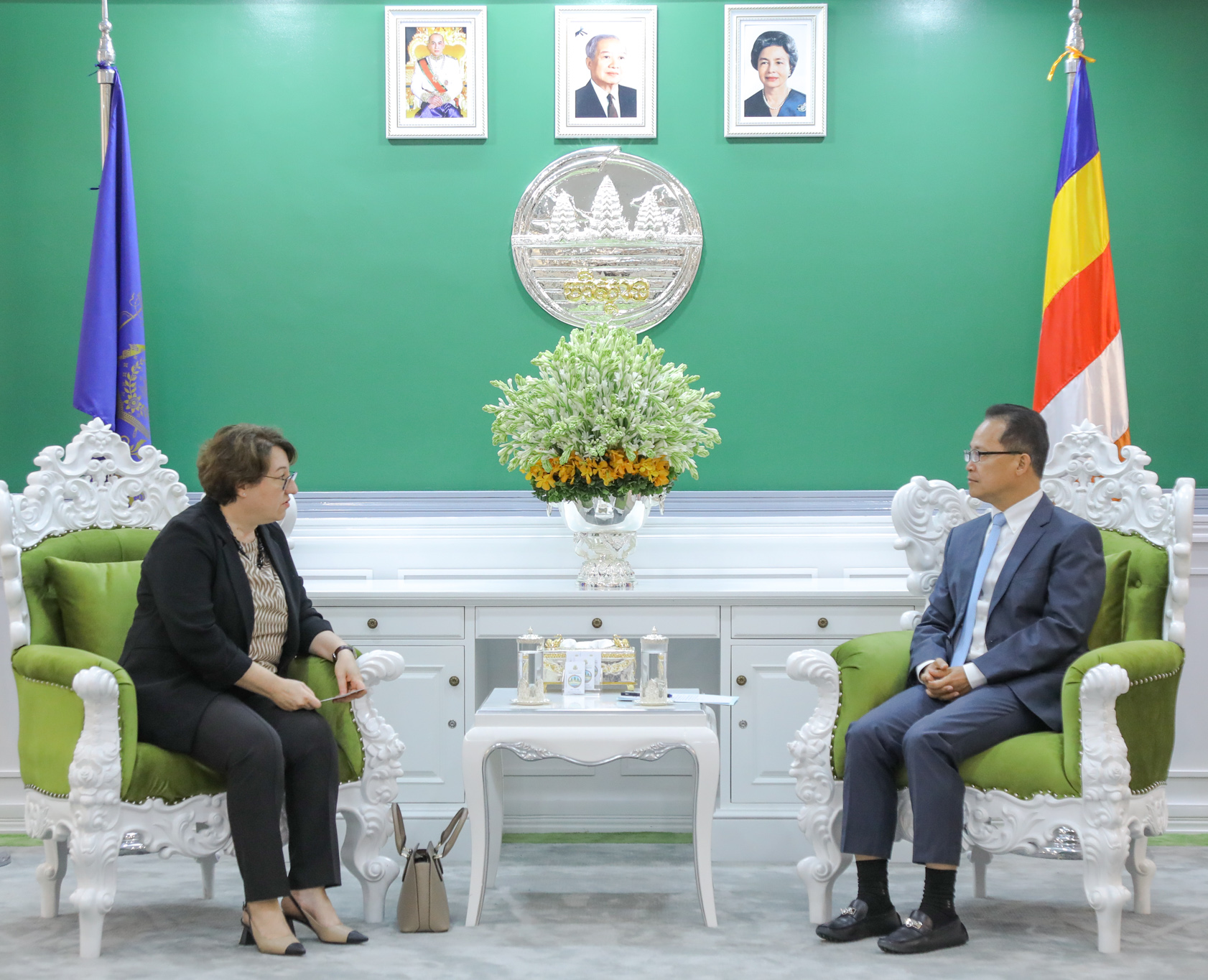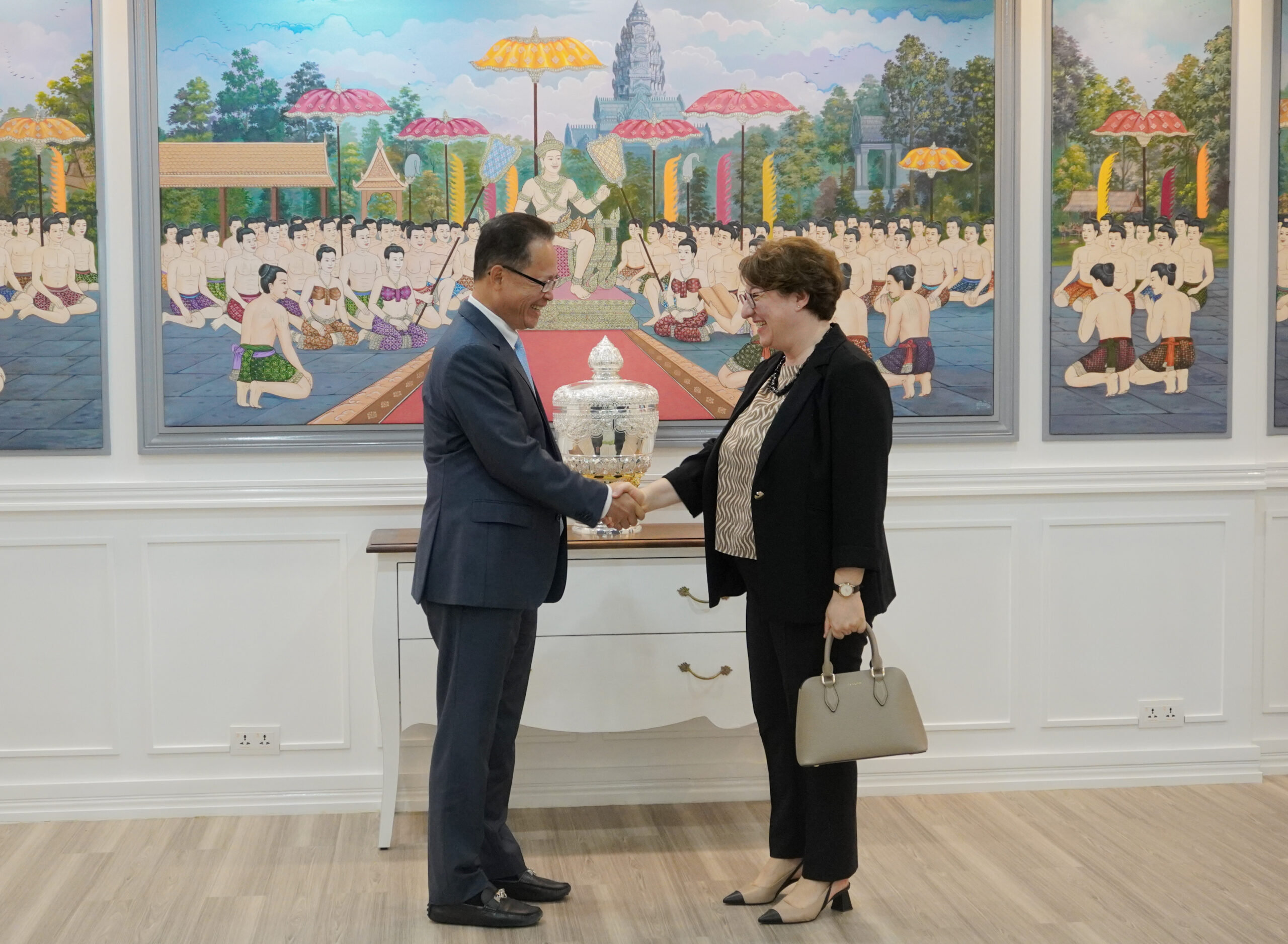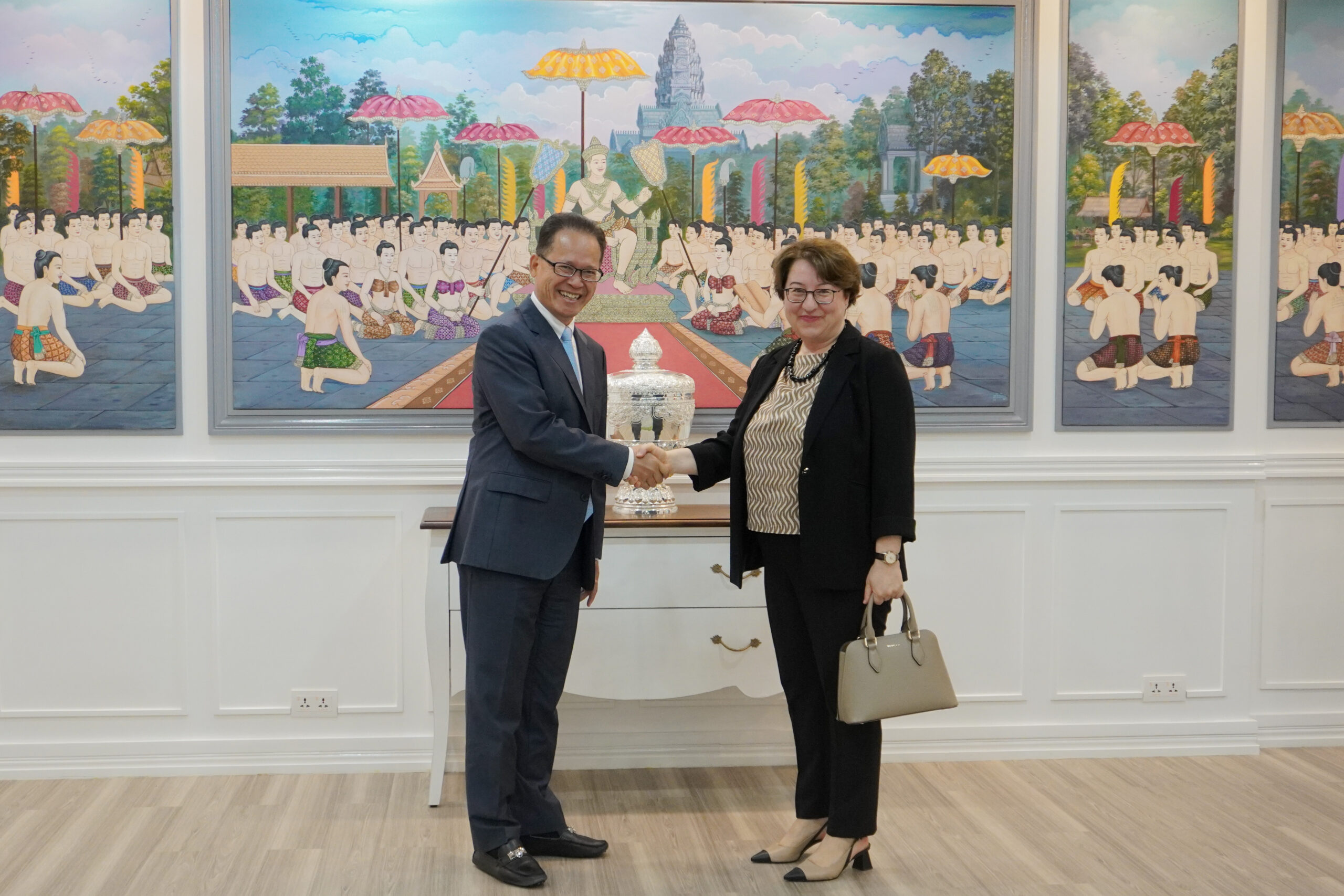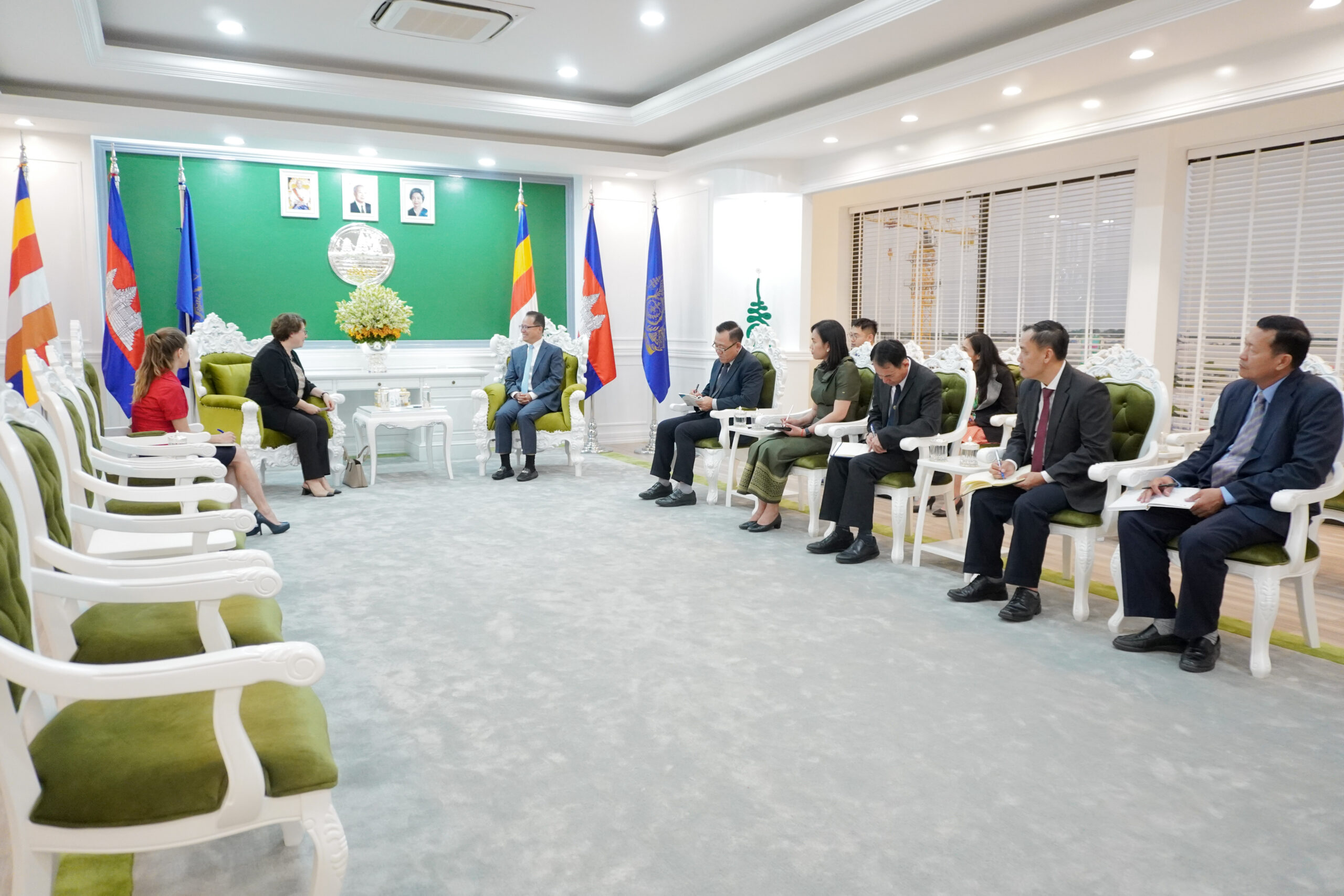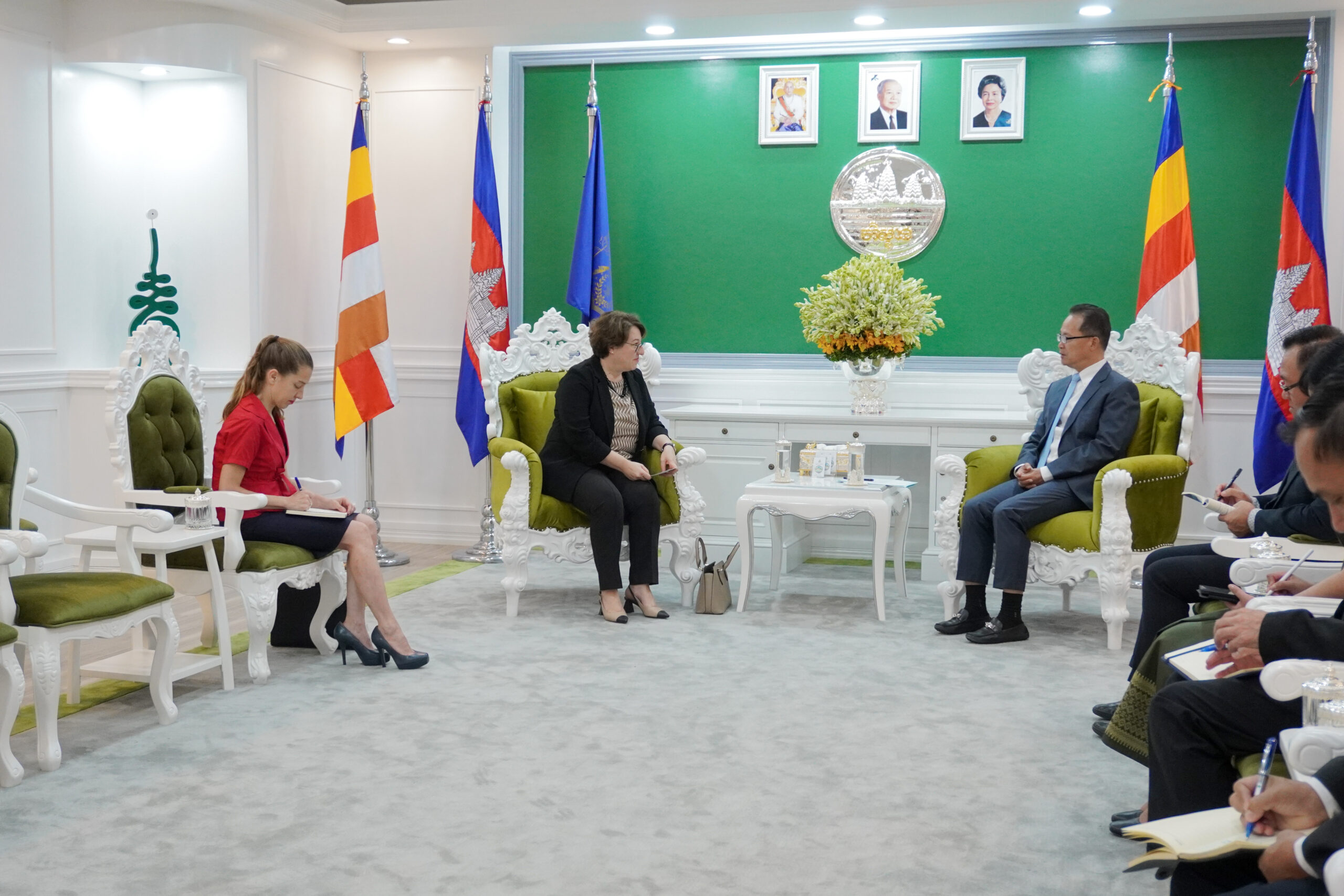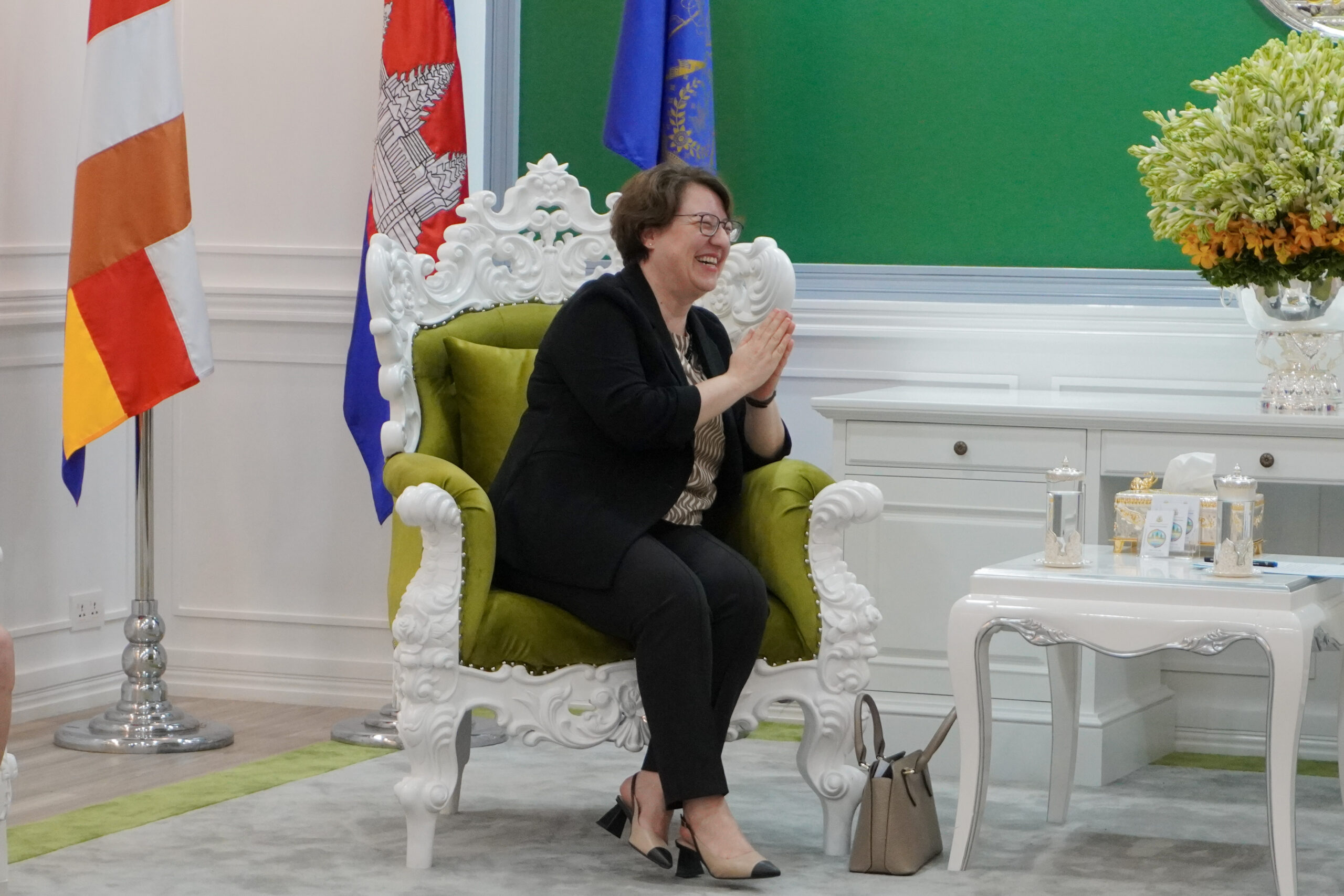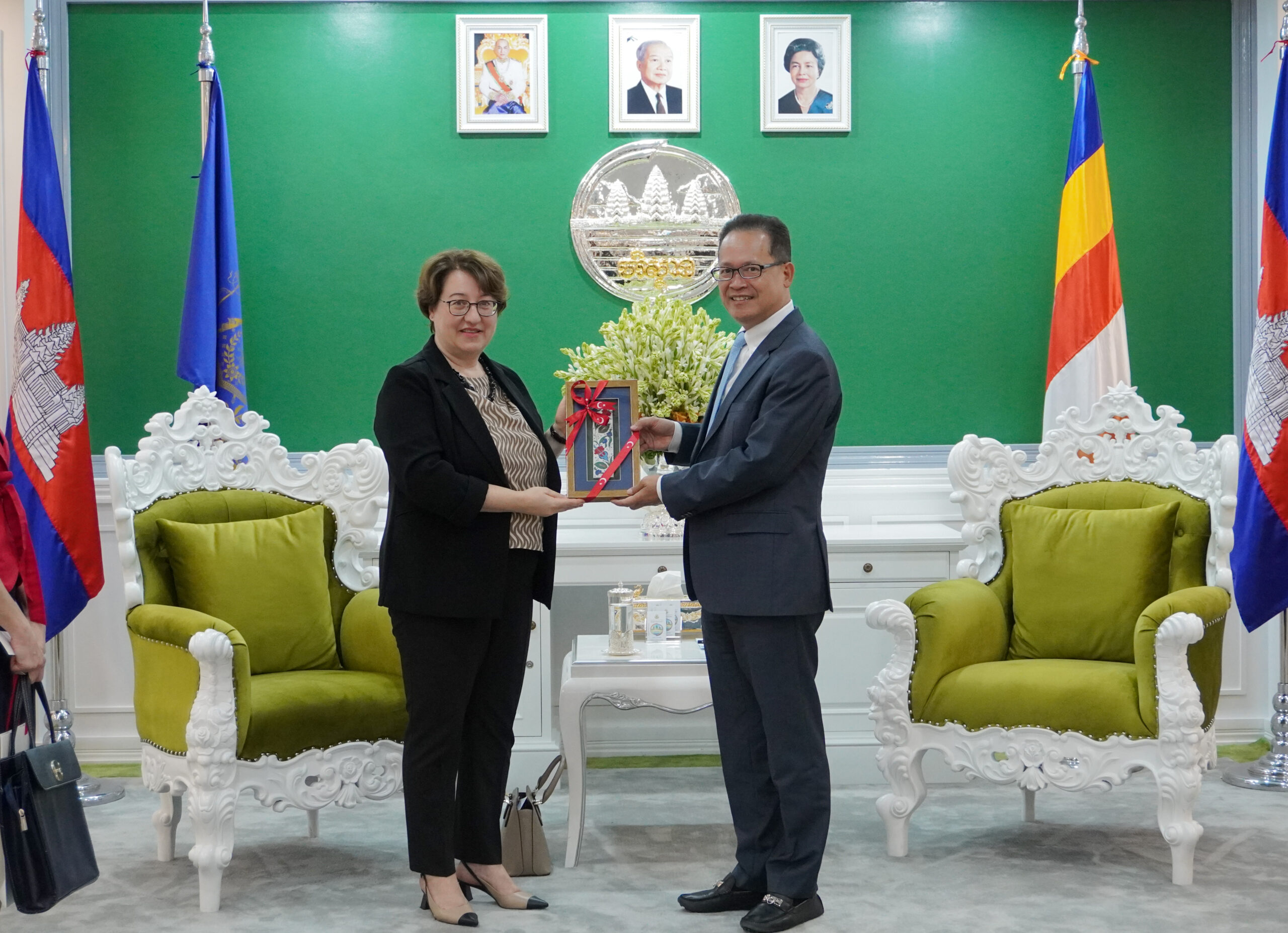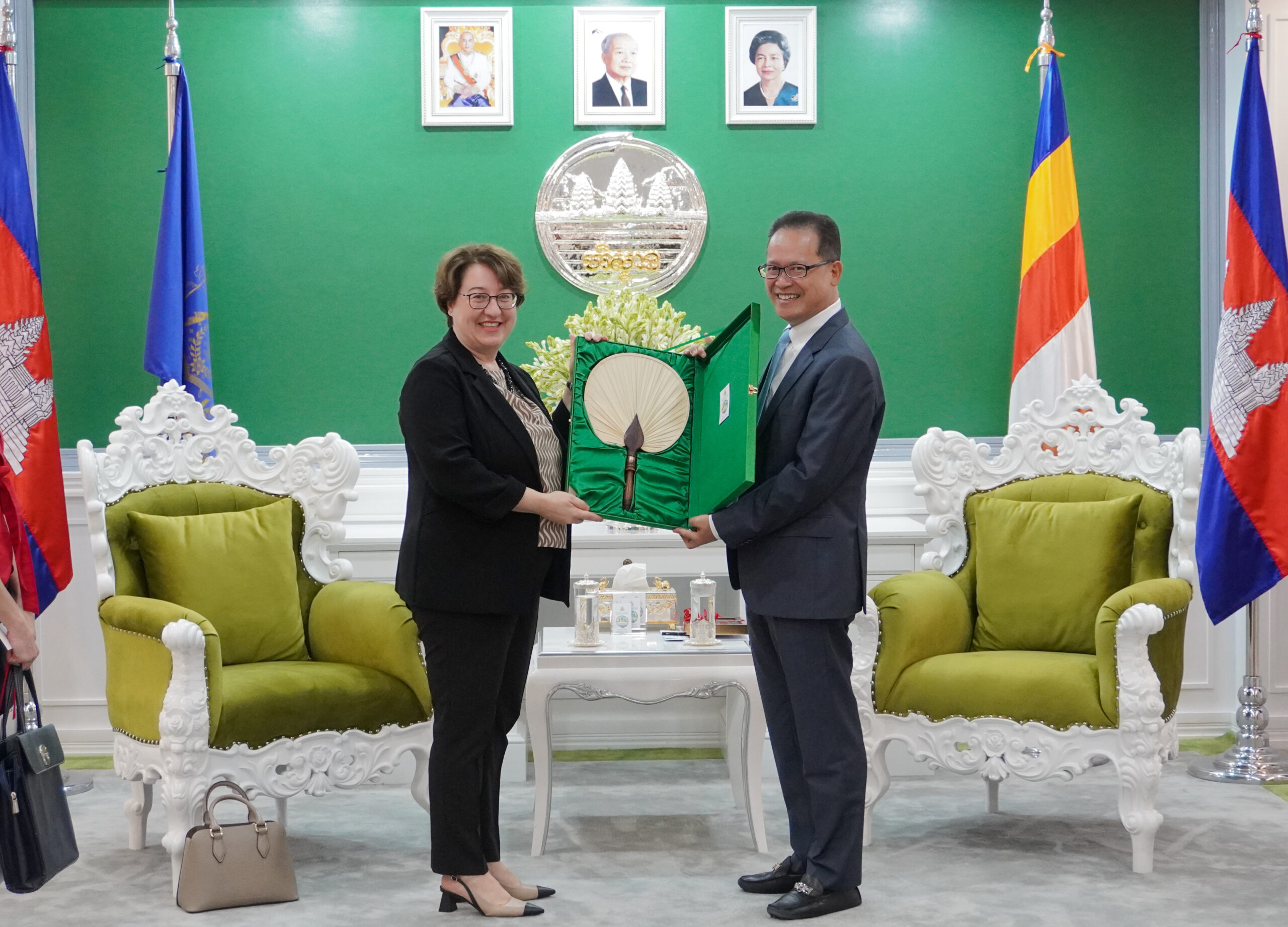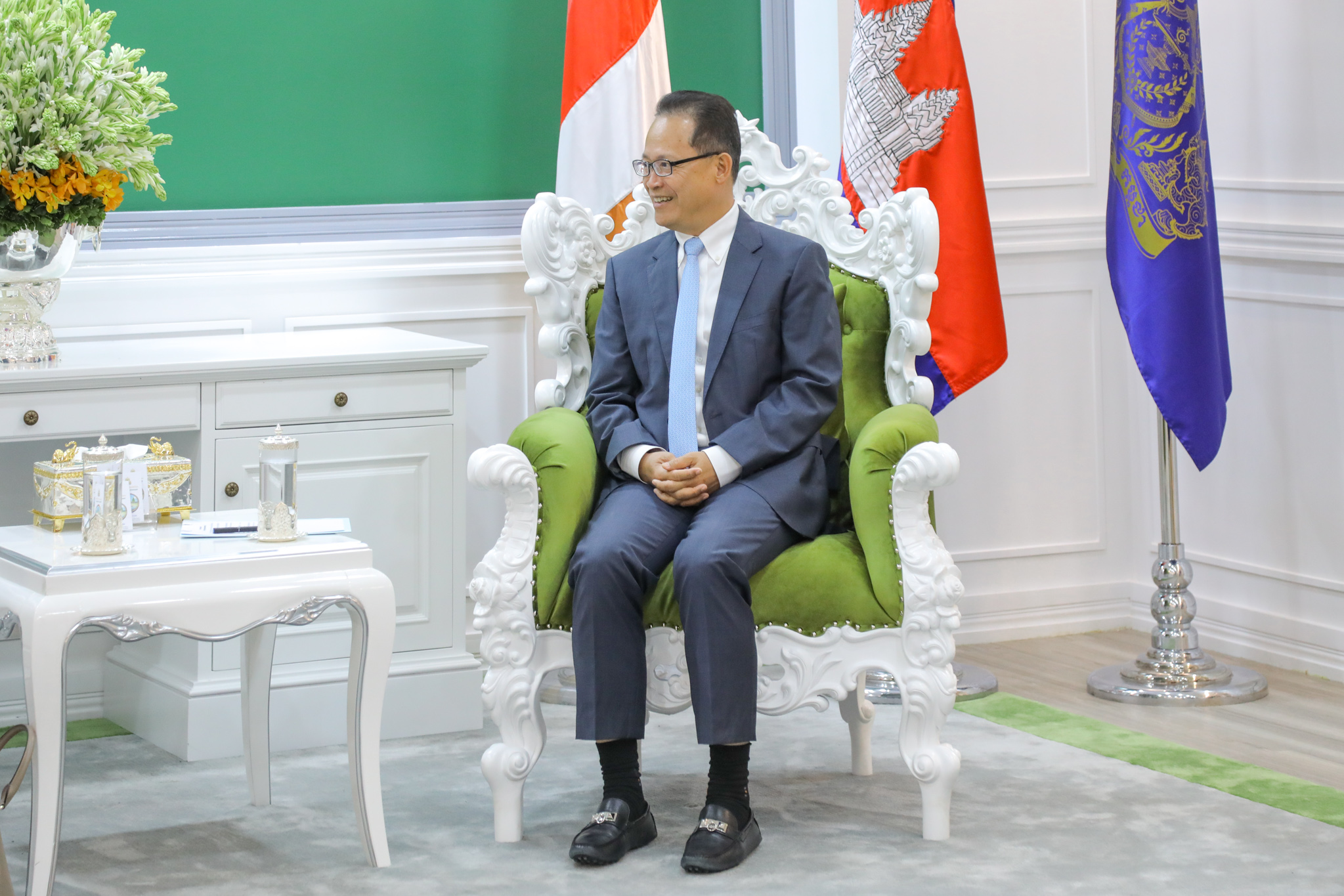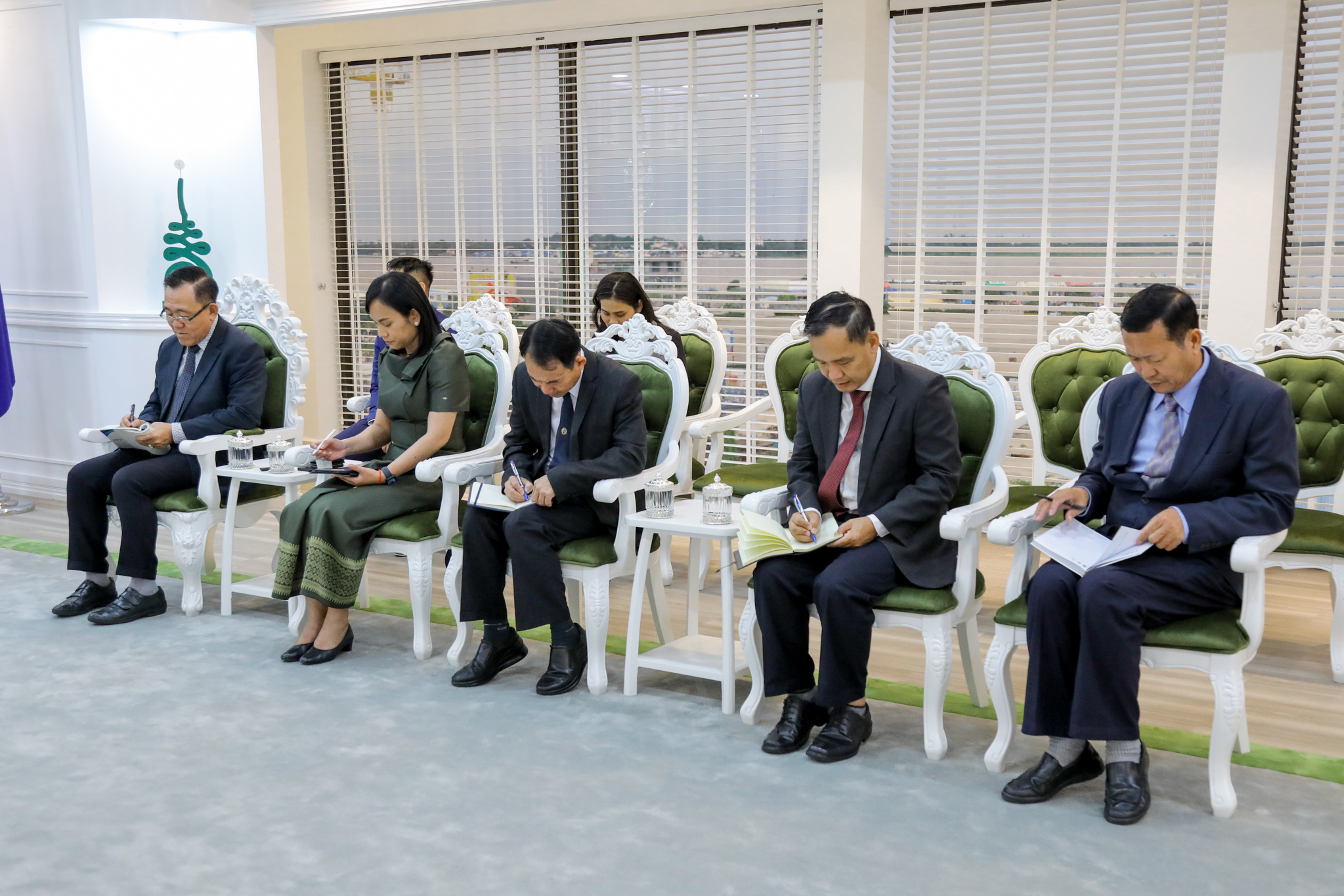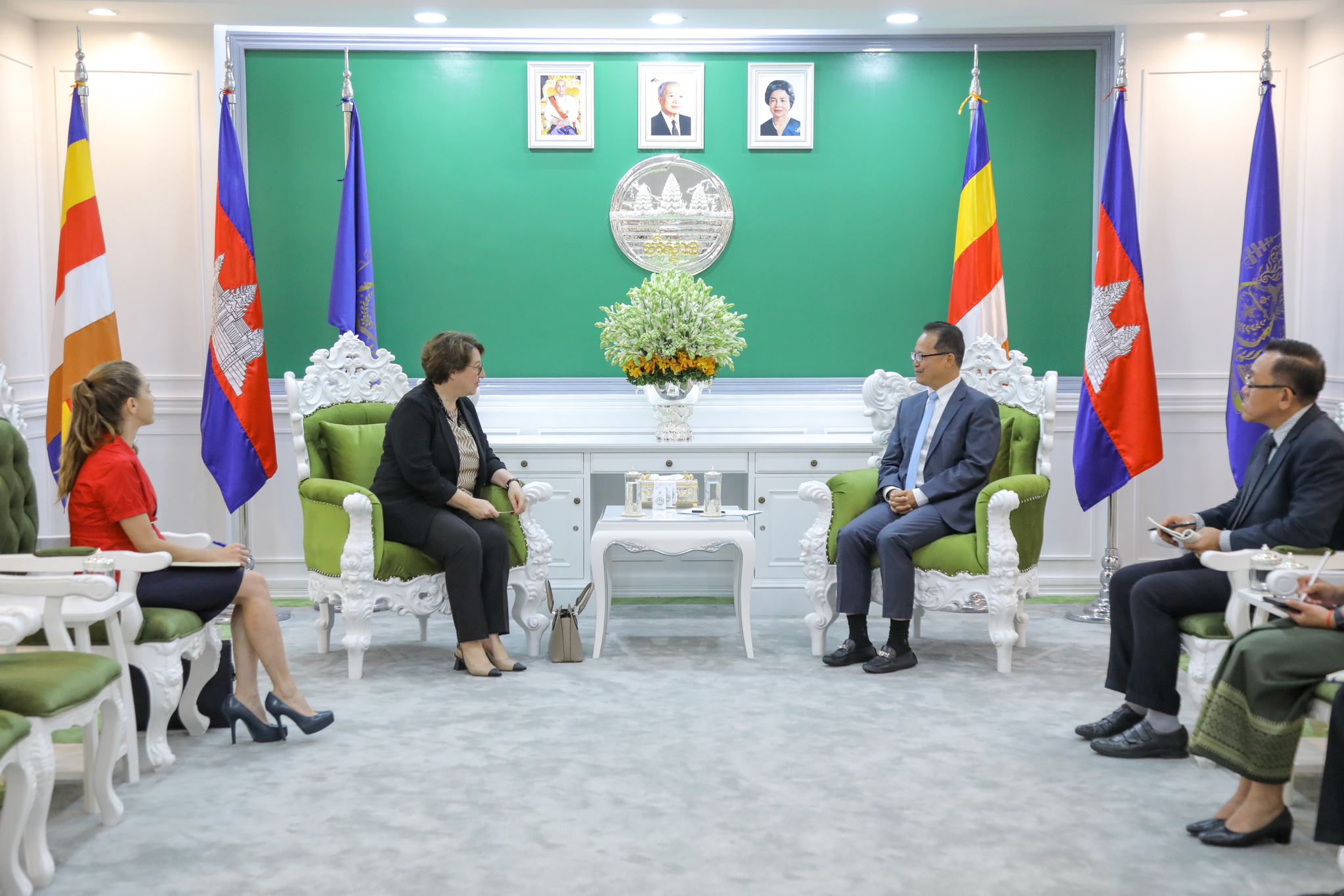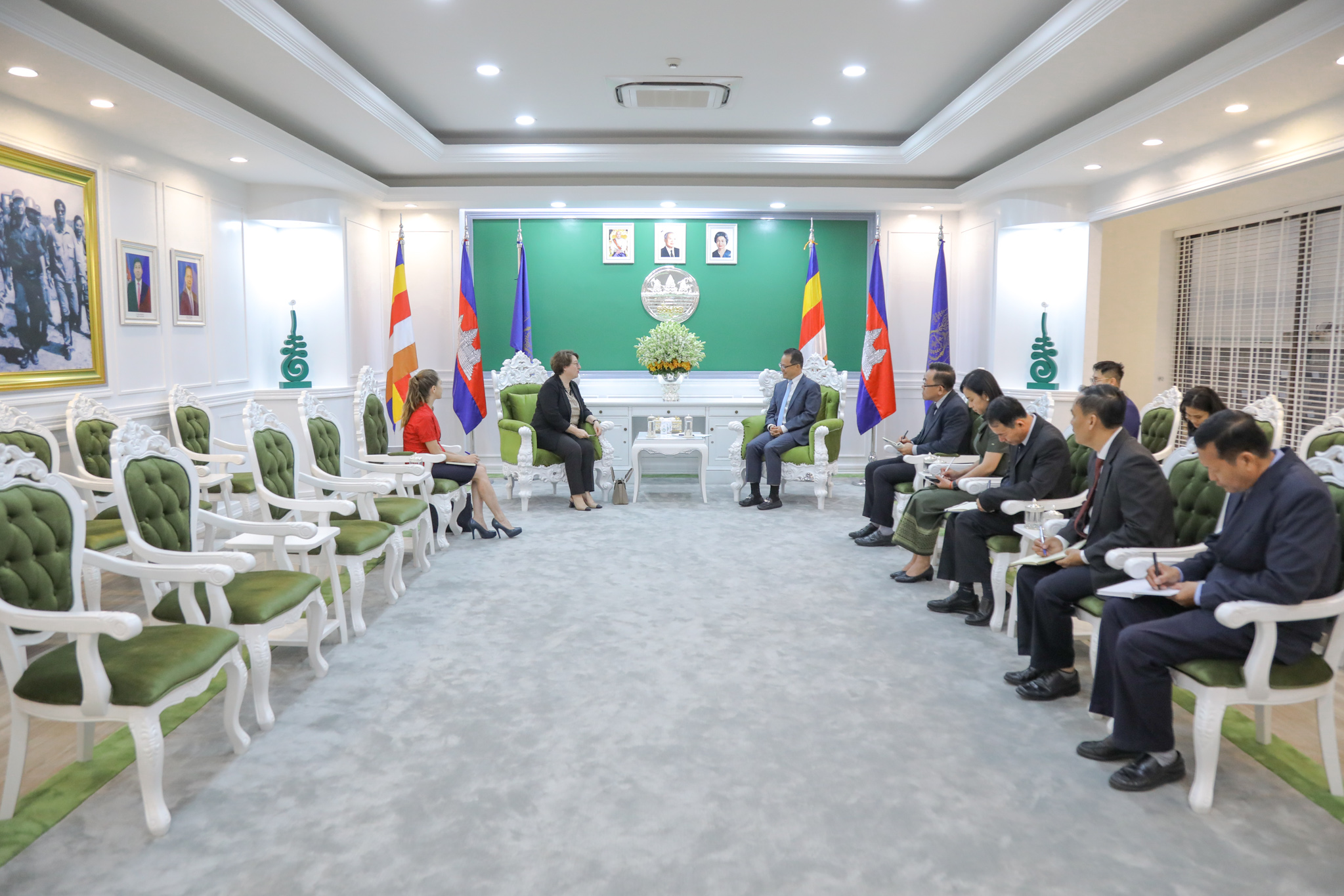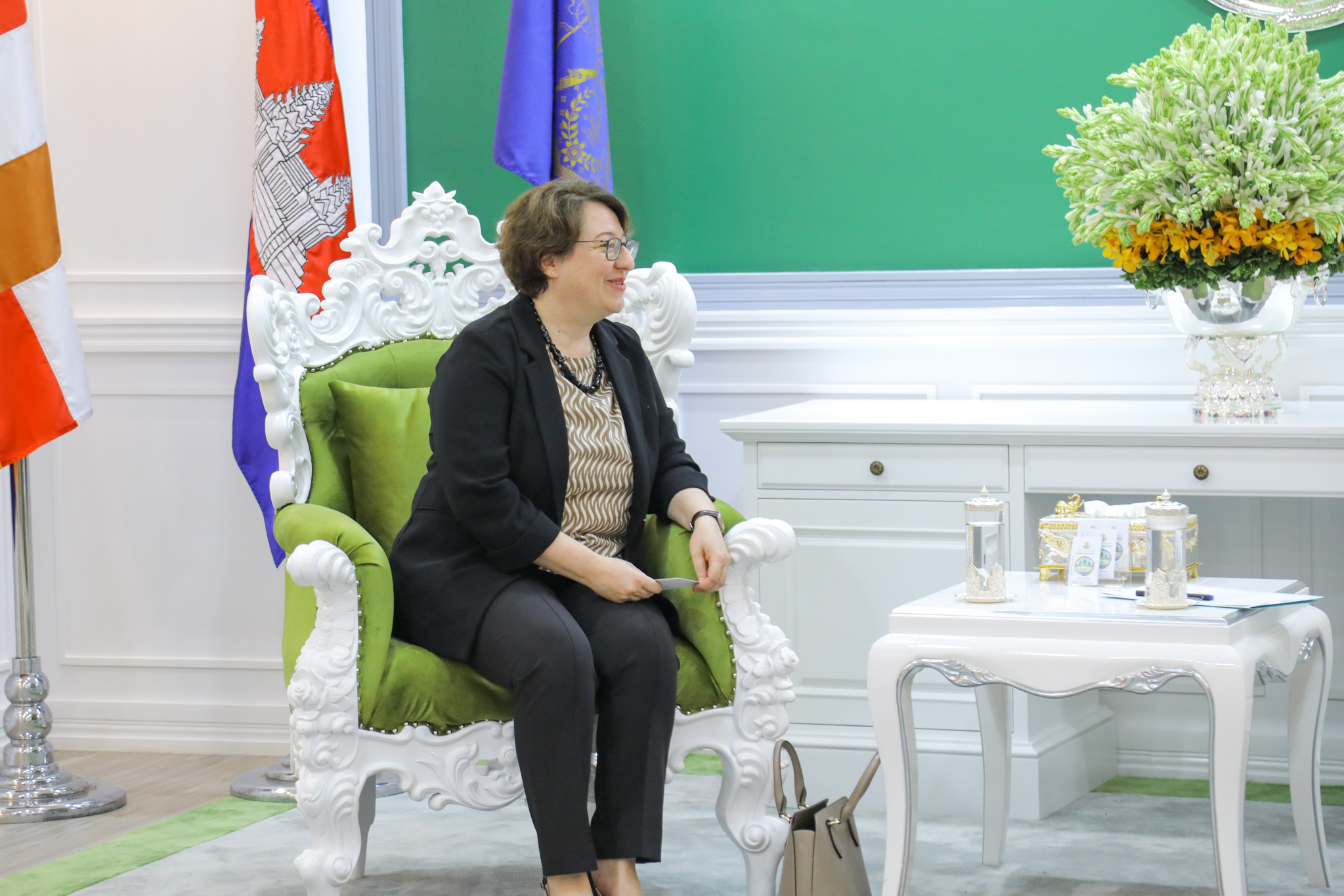October 2, 2023
Phnom Penh, Cambodia: H.E. Ulku Kocaefe, the Ambassador of the Republic of Turkey, conveyed Turkey’s readiness to collaborate with Cambodia on regional and global environmental concerns. Turkey, as a member of the European Union, aligns with the European “Green Deal” initiative, which places a paramount focus on climate change mitigation, waste management, and biodiversity conservation. The Ambassador made this statement during a courtesy meeting with H.E. Dr. Eang Sophalleth, Minister of the Environment, on the afternoon of October 2, 2023, at the Ministry of Environment.
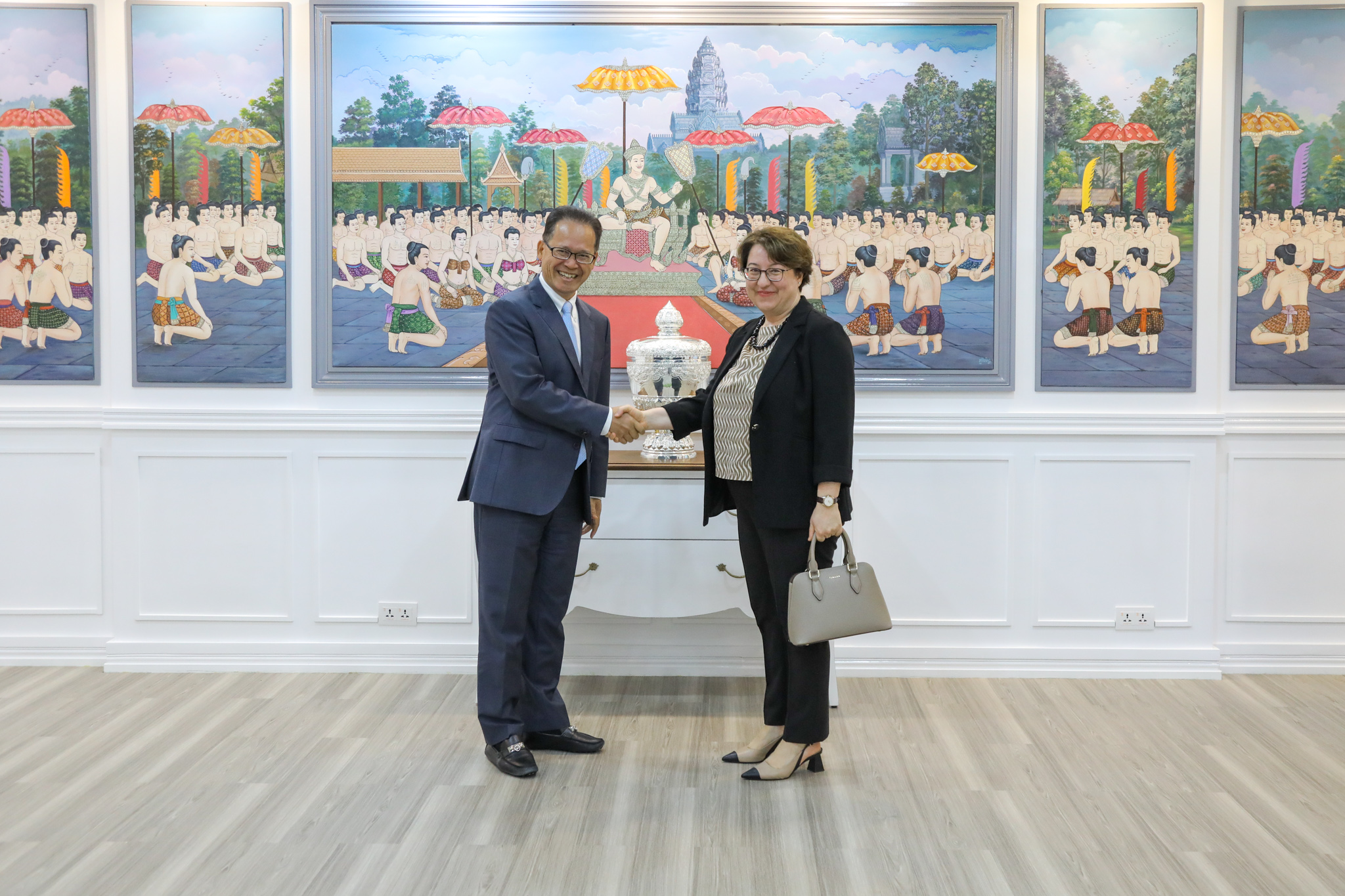
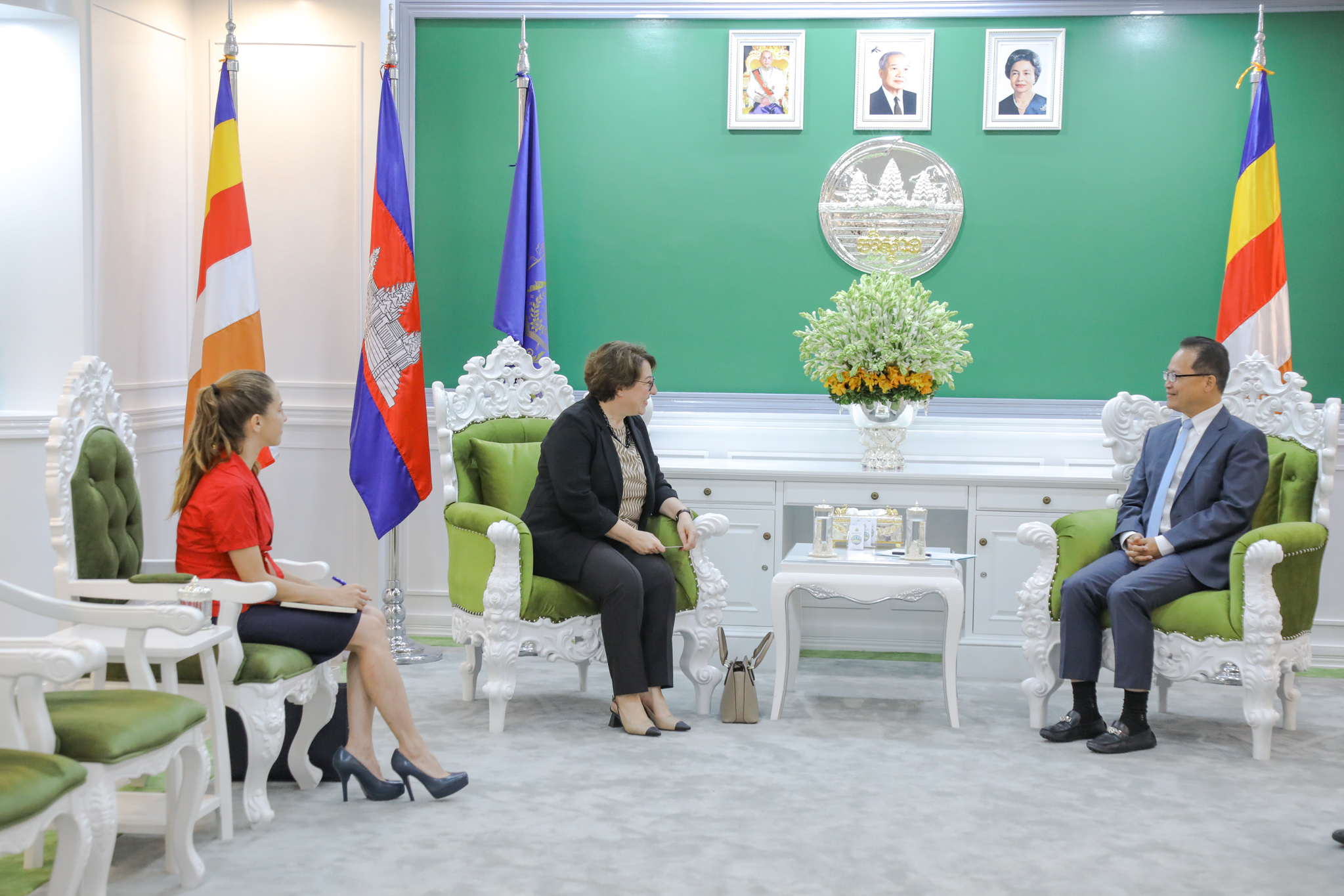
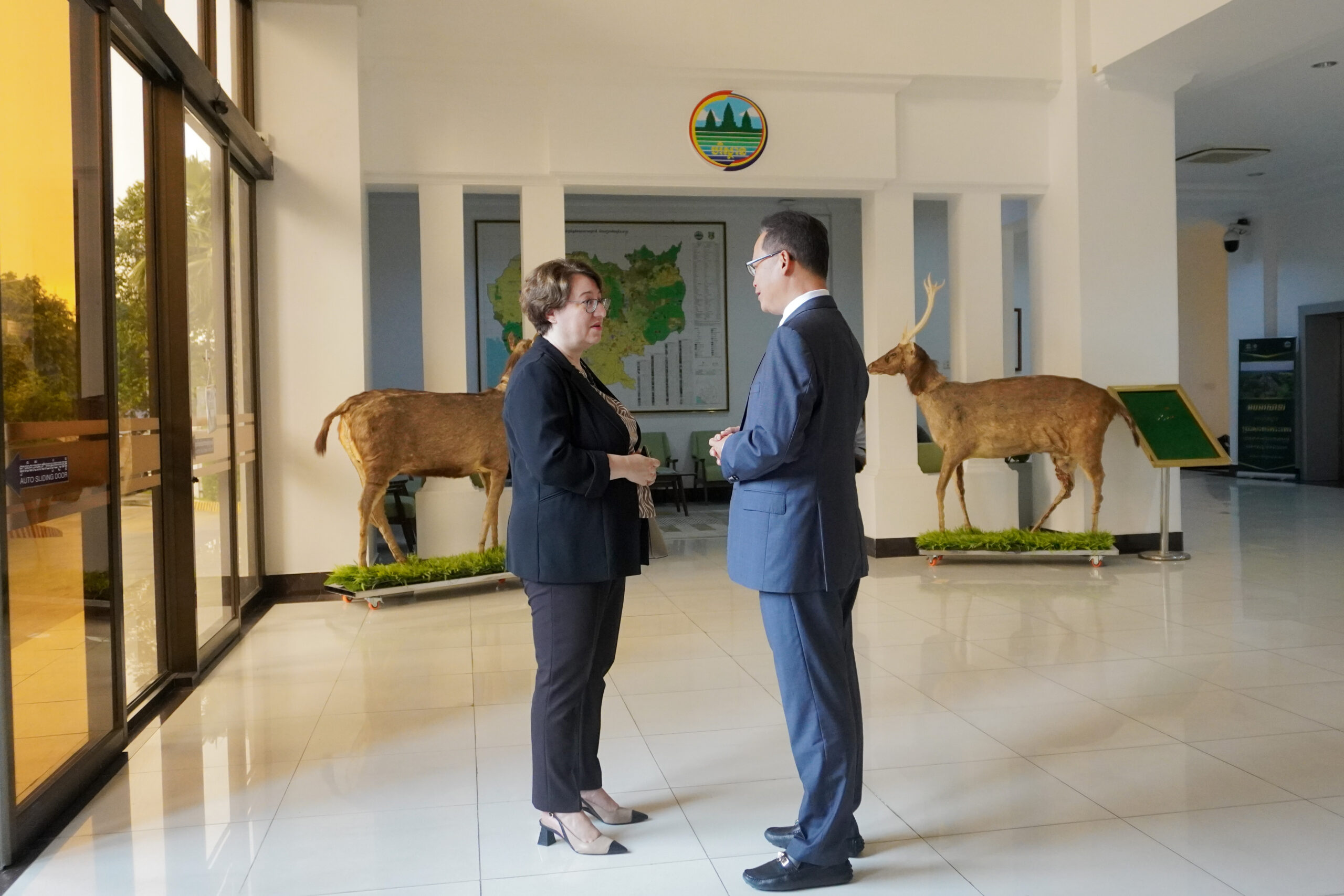
Both Ambassador Kocaefe and Minister Sophalleth share a common commitment to addressing the pressing issue of plastic waste, particularly microplastics. Recognizing the urgency of the matter, the Minister emphasizes the importance of instilling responsible waste management practices in the younger generation, thereby ensuring that these values are passed on to future generations and foster sustainable growth. Practical steps towards achieving this objective include the placement of recyclable waste bins within schools and the installation of water fountains to reduce plastic bottle usage. Furthermore, an ambitious campaign involving 1.3 million students aims to reduce the consumption of plastic bags. Ambassador Kocaefe commends the innovative spirit of the Cambodian people, who have found alternative uses for natural resources such as coconuts and banana leaves for food packaging and beverage storage, proposing the slogan “wrap it like Cambodia.”
Minister Sophalleth outlined his plan to preserve natural protected areas, thereby providing communities reliant on these regions with the opportunity for growth and prosperity. Central to this plan is the initiative to plant 100,000 bamboo trees in the two months, which aligns with a circular strategy for sustained usage. Bamboo, known for its rapid growth and minimal energy expenditure on leaf production, can be regenerated at an accelerated rate compared to other trees. Additionally, the top sections can be utilized to create tiles, while the stalks can be used as a sustainable source of fuel, offering an alternative to firewood and helping combat deforestation. Bamboo’s exceptional capacity to absorb twice the amount of carbon dioxide as other trees while producing 30% more oxygen makes it an ideal candidate for promoting carbon neutrality. This grassroots approach, starting with communities, could pave the way for Cambodia to become carbon-neutral, one community at a time.
In summary, the Republic of Turkey’s commitment to collaborating with Cambodia on environmental and climate issues is a testament to the shared global responsibility of safeguarding the planet’s future. This partnership not only addresses immediate concerns like plastic waste but also encompasses the long-term circular strategy for sustainable growth and carbon neutrality, all while respecting the vital ecosystems of Cambodia.
